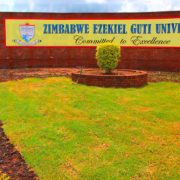Lloyd Rubaya
Located some 32km North West of Harare is an overpopulated community of internally displaced people with an estimated 700 households housing above 10 000 people, aptly dubbed Mandebvu, while south east of Harare, is another densely populated Epworth community with more than 20 000 residents, typical communities for the novel virus.
The houses are too closely packed, making it difficult to observe social distancing.
The people live in tightly placed communities, where COVID-19 can easily transmit from one host to another and without face masks or washing facilities, the communities are way too exposed and susceptible to mass infections.
Because of this, Mandebvu had since become a death trap by design.
As it there was magic behind, no death records were registered at the height of the pandemic, very few people fell ill and the recovery rate was 95%, the inevitable was halted and lives were saved.
Like the old adage said a stitch in time save nine.
Mandebvu and Epworth community members recieved a shot in the arm, just what the doctors had ordered, a system from well wishers and donors intervened to save thousands of community members.
Speaking to this publication at the projects tour yesterday, residents expressed deep joy for the timely intervention as they have not had any COVID-19 related casualty since it came.
“These mechanisms reduced the risk of COVID-19 in our highly risky area and because of these, it was not so difficult to mobilize people to get vaccinated.
The people now understand ways to prevent themselves and ¾ of our population have been fully vaccinated and we always follow the WHO precaution measures,” acknowledged Anna Chatyoka who is also a health worker
Program coordinator Juliet Thondhlana of University of Nottingham, said that they were moved towards mitigating Covid 19 and preserving lives.
“We need to save and preserve lives in these Internally Displaced communities, so they identified an implementing partner which is ZEGU, and came out with various COVID-19 mitigating solutions and also empowering the community to be self sustainable by equipping and training them to make own sanitizers and face masks that they can even sell to other communities as well,” she said.
Evelyn Garwe who is a Zimbabwean partner dovetailed with Thondhlana and said they wanted to train community members to be self-sustainable hence they started the projects for them.
She also added that the trainings will go a long way as community may make it a pass-on program.
“We identified local experts and engineers to implement the technical structure of the project with various engineers engaged to install full body sanitizers, hand washers and dressmakers to train community members to make own face masks and extra for sale,” she said.
Adella Lazaro also applauded the efforts ZEGU put in empowering them at the same time making sure that they are protected from the pandemic.
Among the projects are the making of hand and dishwashing liquids, toilet cleaner and masks.
Trevor Ruwa who is Innovations Engineer at ZEGU hinted that besides providing the machines, they are also urging community to monetize their detergents which are highly effective in fighting the lethal pandemic.
“On these projects we looked mostly at robustness and maintainability because the installations were done together with the community people and they have a sense of ownership.
They also know how to maintain the equipment and how it is supposed to work,” he said.
Image Box Title
Change this description

Zimbabwe Ezekiel Guti University (ZEGU), a local private university synergizing with the University of Zimbabwe, Women’s University in Africa as well as international universities from the United Kingdom, University of Nottingham and University of Wolver Hampton are the main implementing partners towards the low cost COVID-19 alleviating solutions.
These institutions are working closely with a local NGO, the National Age Network of Zimbabwe (NANZ), to come up with various solutions targeting the less privileged communities as they leverage on ZEGU’s low cost COVID-19 innovations.
The project since inception has been funded through a United Kingdom based institution, UKRI’s GCRF/Newton Fund Agile Response for COVID-19.
This comes at a time when Zimbabwe is in apprehension over a purported fourth wave as the number of positive cases almost doubled from 399 yesterday to 712 today.







Comments